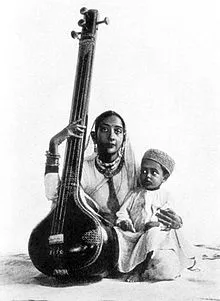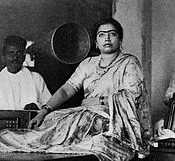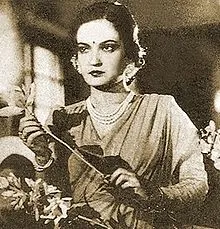The voices that have been forgotten but not lost: women singers of the 1900’s
It is essential to do everything possible to attract young people to opera so they can see that it is not some antiquated art form but a repository of the most glorious music and drama that man has created. –Bruce Beresford
Bruce, a veteran Australian movie director with a career spanning 50 years, probably realised how far removed some generations were from the music the masters had created centuries ago.
However, in retrospect, I’m glad to reflect that my teens were not just about Backstreet Boys, but also a healthy dollop of Indian classical music. All thanks to my mother, whose love for Sufi music, ghazals and Indian classical and soulful music exposed me to different genres. And it touched a chord within me at a young stage.
Over the years, a lot of the glorious music has been forgotten. The women who once graced mujras, the mehfils and the drawing rooms of the rich and the famous have been swept under the carpet and forgotten. Many have not even been heard of or spoken about for decades.

As technology shrinks our world, we look back upon a glorious musical past and the legacy left behind by some of the best Indian women singers, whose names you may have never heard before. These are exceptional women whose legacy lingers and it is perhaps time to revive some of that music for the younger generation.
Here is a list of some of the beautiful voices that have dotted the Indian music scenery.
Zohrabai Agrewali (1868–1913)
Zohrabai Agrewali belonged to the Agra gharana of music. She marks the dying phase of

the courtesan singing tradition in Indian classical music. One of the most notable singers of her time, Zohrabai is known for her distinct style – macho style of singing.
Zohrabai sang a variety of genres such as khayal, thumri, and ghazals. She had influenced some of the biggest names of the Agra gharana and in the music cosmos of her times. Trained under Ustad Sher Khan and Ustad Kallan Khan, her music survives as 78 rpm recordings. She recorded over 60 songs during 1908-1911.
Gauhar Jaan (26 June 1873 – 17 January 1930)
A singer and dancer from Kolkata, Gauhar Jaan was one of the first performers to record music on records (78 rpm) in India.
Though born as Angelina Yeoward in Azamgarh, Gauhar was of Armenian descent and born to Anglo-India parents, William Robert Yeoward and Victoria Hemings. Victoria was an Indian by birth. She embraced Islam after she divorced William and became Malka Jaan and changed Angelina’s name to Gauhar Jaan. The mother-daughter duo had migrated to Benares in 1881 and in 1883 moved to Kolkata.
Inspired by her mother, who was a courtesan and an accomplished dancer, she trained in pure and light classical singing from Kale Khan of Patiala and others, Kathak and Dhrupad dharmar from the best teachers.
She became proficient in Rabindra Sangeet and started composing and writing ghazals under her pen name, Hamdam.

Suresh Chandvankar, in “My name is Gauhar Jan: first dancing girl, Calcutta“, in the online journal Musical Traditions writes about how the early records of Gauhar Jan were labeled ‘First dancing girl, Calcutta’. “The word ‘first’ indicates her elevated position as the premier vocalist in the Kolkata musical world of 1890-1910. She cut records of raagdari sangeet, thumri, dadra, kajri, chaiti, bhajan, tarana and she popularised various types of ‘Kachha’ gana through her records. This was remarkable when several great stalwarts of Indian classical music ignored the gramophone and recording medium completely and refused to record. She mastered the technique of presenting a musical item in just three minutes, and this became a model for the vocalists of the future. She recorded the music taught by her Ustads, which meant that she helped preserve our musical tradition of at least the three to four generations preceding her own. Thus, her recordings are very useful for students and also for researchers who might wish to trace the development of Indian classical music over the last two or three hundred years.”
In her lifetime, from 1902 to 1920, she recorded more than 600 songs, in more than 10 languages, including Bengali, Hindustani, Gujarati, Tamil, Marathi, Arabic, Persian, Pushto, French, and English. Each recording rounded off by her announcing – ‘My name is Gauhar Jaan’.
Her maiden performance was in Dharbhanga Raj in 1887 as court musician. She started performing in Kolkata from 1896. She was invited to perform at King George V’s coronation at Delhi Durbar. In her final days, she moved to Mysore at the invitation of Krishna Raja Wadiyar IV of Mysore, where she was appointed the ‘Palace musician’. She died within 18 months of her appointment.
Akhtari Bai Faizabadi (7 October 1914 – 30 October 1974)
Given the title of Mallika-e-Ghazal (Queen of Ghazals), Begum Akhtar as she was popularly known has been celebrated for her singing. Born in the Faizabad district of Uttar Pradesh, she sang the following genres – ghazal, dadra and thumri. She also sang light classical pieces and has to her credit nearly 400 songs.

She was encouraged to learn music when she was seven. She was sent to Patna to train under Ustad Imdad Khan, the sarangi exponent, and later she went to Kolkata to train under the classical music stalwarts like Mohammad Khan, Abdul Waheed Khan of Lahore. She finally became a disciple of Ustad Jhande Khan.
Her first public performance was at the age of 15 and was much appreciated by Sarojini Naidu. This encouraged her to pursue a career in music. She regularly performed on All India Radio and also cut a record. She also sang and acted in movies. The gahazals she sang were mostly raag based and composed by her.
A lot of books, music, and videos have been dedicated to her. Regula Burckhardt Qureshi in an article titled ‘In Search of Begum Akhtar: Patriarchy, Poetry, and Twentieth-Century Indian Music (The World of Music, Vol. 52, No. 1/3)’ writes about how Begum Akahtar transformed from a hereditary professional singer to a married woman who gave up her music career only to emerge into the public domain transformed into a national symbol iconic of courtly musical culture, which had shaped her.
She was awarded the Sangeet Natak Akademi Award for vocal music, and the Padma Shri and Padma Bhushan (posthumously).
Thanks to technology, the voices of these inspiration women have not been lost though they may have faded from the public memory. For those appreciative of Indian classical music and ghazals and for the students of Indian music and researchers working on music, these are the glittering stars on the galaxy of Indian music.







